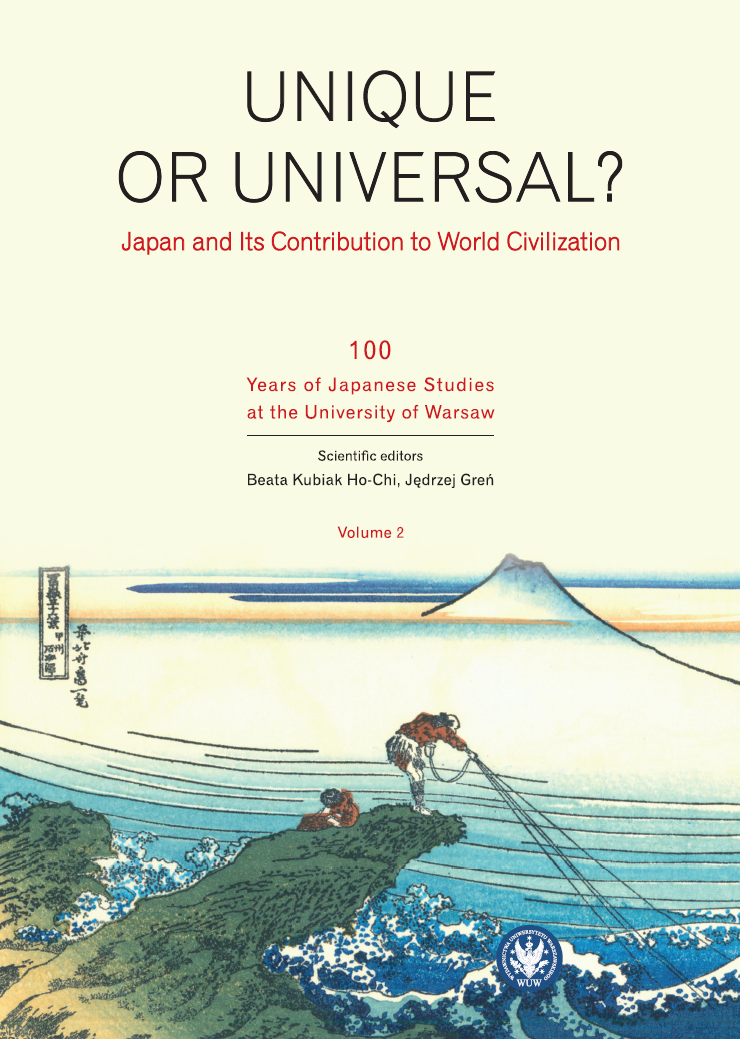Passion and Form, Modernity and Tradition in the Unique Language of the "Midaregami" Poems of Yosano Akiko
Passion and Form, Modernity and Tradition in the Unique Language of the "Midaregami" Poems of Yosano Akiko
Author(s): Anna Zalewska
Subject(s): Cultural history, Studies of Literature, Other Language Literature, Philology
Published by: Wydawnictwa Uniwersytetu Warszawskiego
Keywords: Japanese poetry; tanka; Yosano Akiko; versification; modern poetry; sensuality; female beauty
Summary/Abstract: Yosano Akiko (1878–1942) gained fame as a poet, both in tanka and modern shintaishi form, as a wife of Yosano Tekkan, also a prominent poet and literary magazine editor, and as a feminist, pacifist, and social reformer, author of many texts published in the "Seitō" ["Bluestocking"] magazine. In order to better understand the uniqueness of her poetic art, I take into consideration her language and the peculiarity of the versification of her poems. Although throughout her lifetime she produced many thousands of tanka poems, her most successful and most discussed collection of poetry was the first one: "Midaregami or Tangled Hair", published in 1901. Being the first poet, and moreover a female poet, to use words like ‘breasts’ in tanka, she scandalized and received harsh criticism from some literary figures of her time. Others criticized her for creating poems which were hard to comprehend. In the first half of the twentieth century, her poems appeared to be full of passion and eroticism, her women were active and conscious of the beauty of their bodies and their sexuality. Yosano Akiko is still remembered as a scandalist and a creator of the most assertive, passionate poetry, but how is this passion created? In this paper I attempt to analyze modernity and tradition in Yosano Akiko’s poems.
Book: Unique or universal. Japan and its Contribution to World Civilization. Volume 2
- Page Range: 107-123
- Page Count: 17
- Publication Year: 2023
- Language: English
- Content File-PDF

